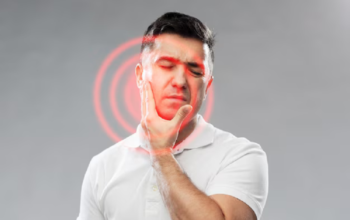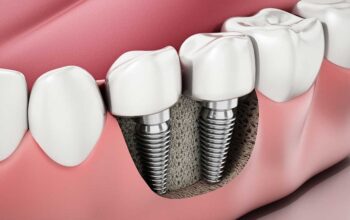Your entire body may experience side effects, regardless of whether you use medication regularly or have just received a prescription. What negative reactions can appear in your mouth at this time, and how can you help control them? This is what you should know about medicine and teeth.
In Toledo, you have a lot of dental clinics to choose from. If you are having dental problems that require immediate treatment, contact a family dentist in Toledo, OH.
How do medications affect your oral health?
The following types of medications could have an impact on your mouth:
- Antidepressants: These medications may result in xerostomia or dry mouth. According to the American Dental Association (ADA), having less saliva than usual can make your mouth feel uncomfortable and increase your risk of tooth decay since saliva protects your teeth by removing dirt while preserving the strength of their surfaces.
- Antihistamines: These may also increase the risk of gum disease and cause dry mouth.
- Antihypertensives: These medications, which are used to treat high blood pressure, can increase the risk of gum overgrowth and swelling.
- Aspirin: Regular chewing of aspirin tablets may damage tooth enamel due to their acidic nature. These drugs should always be taken whole with water.
- Medications for asthma: These chemicals are likewise acidic and, if used for a long period of time, can harm the teeth’s outer surfaces. According to the ADA, patients who take inhalers can develop an illness known as oral thrush.
- Immunosuppressive drugs: These drugs may increase the risk of mouth infections or gum disease.
- Bisphosphonate medications: These can sometimes result in serious problems by compromising the healing of your jawbone, such as after a tooth extraction or other oral surgery.
These are a few common adverse drug reactions.
1. Abnormal Bleeding
Aspirins and anticoagulants like warfarin or heparin can cause reduced blood clotting. During oral surgery or the treatment of periodontal diseases, these drugs can cause bleeding issues, but they may also be helpful for preventing heart disease or stroke. Any medications you may be taking should be disclosed to your dentist, especially when scheduling for possibly bleeding treatments.
2. Taste-altering medications
Certain drugs can affect taste buds or produce a metallic or bitter flavor. These include nonsteroidal anti-inflammatory medications, cardiovascular agents, nervous system stimulants, respiratory inhalants, and smoking cessation assistance like nicotine skin patches.
3. Soft-Tissue Reactions
Oral sores, inflammation, or discoloration of the soft tissues in your mouth have all been associated with certain drugs. These drugs include immunosuppressive drugs, oral contraceptives, blood pressure meds, and some chemotherapy medications. To reduce the discomfort brought on by mouth ulcers or inflammation, your dentist might suggest a specific oral hygiene routine if you take either of these and experience a soft-tissue reaction.
4. Enlarged gum tissue
“Gingival overgrowth” means expanded or overgrown gum tissue. It is often linked to immunosuppressive treatments, such as those given after organ transplants, antiseizure drugs like phenytoin, and calcium channel blockers, such as nifedipine, verapamil, diltiazem, and amlodipine, which certain heart patients take. Patients with this illness need to pay special attention to cleaning their teeth and gums.
5. Other medications and illness
Many prescription and over-the-counter drugs may trigger dry mouth as a side effect. These include decongestants, pain relievers, antihistamines, medications for high blood pressure, muscle relaxants, drugs for incontinence, treatments for Parkinson’s disease, antidepressants, and many more. The soft tissues of the mouth become irritated by drying, which can lead to inflammation and a greater likelihood of infection. Tooth decay, along with other oral health issues, becomes more common with the absence of saliva’s cleansing properties. After using an oral inhaler for asthma, patients are advised to rinse their mouths with water to avoid the development of oral candidiasis, an oral fungal infection.
How Can These Adverse Effects Be Reduced?
Avoiding the drug entirely is not the best way to reduce the oral adverse effects of a medication you are taking. Keep in mind that your medical team prescribed the medicine for a purpose, and quitting it without consulting a doctor could have adverse effects.
See your dentist on a regular basis to identify any issues early as well, especially if you are starting cancer treatment or on any of the medications mentioned above.




